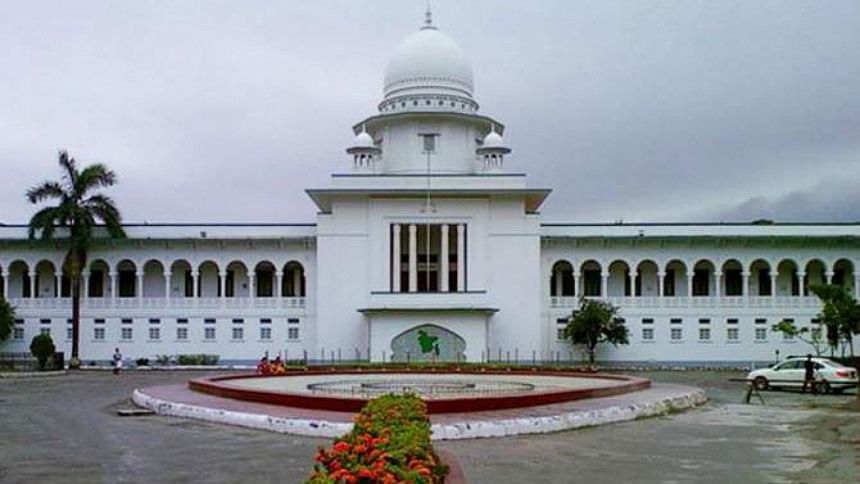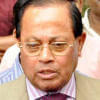EC not empowered to hold fair polls: SC

None of the succeeding governments took any step to strengthen the Election Commission with all the powers it needs for holding a free and fair parliamentary election, observed the Supreme Court in the 16th amendment case verdict.
Even the opposition parties had not raised the point in parliament or in any forum which resulted in the EC not being institutionalised yet, the SC said.
In the constitution's 13th amendment case verdict in May, 2011, the apex court said the EC should be made more empowered and institutionalised so that the parliamentary elections could always be held fairly without the non-partisan caretaker government system.
The apex court in that verdict declared the provision for caretaker system unconstitutional and void.
It had, however, said two parliamentary elections – 10th and 11th – could be held under the caretaker system. The court asked to strengthen the EC by this time so that it could hold free and fair elections in the absence of a caretaker government.
The SC had also asked to develop a system for automatic filling of vacancies in the EC without the government's intervention.
According to article 118 (1) of the constitution, the government is supposed to formulate a law specifying procedure for appointing election commissioners but no government in the last 45 years have been able to make the law. In the past, appointments of election commissioners had led to political controversies.
The EC's failure to perform as per the desire of the people led to political chaos and subsequently caretaker government system was introduced in 1996.
Following the 13th amendment verdict, the government in June 2011 opted for abolishing the election-time non-partisan caretaker government system. This created a political turmoil as the BNP-led alliance boycotted the 10th parliamentary election held on January 5, 2014.
More than six years after the verdict in the 13th amendment case, the SC in the 16th amendment case verdict strongly spoke for a credible election with the EC preparing for holding the 11th parliamentary election in early 2019.
"Unless the national parliamentary election is held impartially and independently free from any interference, democracy cannot flourish. In the absence of credible election, a credible parliament cannot be established," observed the apex court.
It further stated, "As a result, our election process and the parliament remain in infancy. The people cannot repose trust upon these two institutions and if these institutions are not institutionalised to gain public confidence and respect, no credible election can be held."
In the absence of a free and fair election, parliament could not be constituted with wise politicians and this might impede institutionalisation of parliament itself, it said.
If parliament was not matured enough, it would be a “suicidal attempt” to give parliament the power to remove judges of the higher judiciary, observed the SC.
It said the political parties should be cautious in selecting their candidates for the national elections.
"It is expected in a country run by constitutional democracy that the following indispensable constituents would exist: (a) purity of election, (b) probity in governance, (c) sanctity of individual dignity, (d) sacrosanctity of rule of law, (e) independence of judiciary, (f) efficiency and acceptability of bureaucracy, (g) credibility of institutions like judiciary, bureaucracy, Election Commission, Parliament, (h) integrity and respectability of those who run those institutions," read the verdict.
The SC also spoke about the troublesome political culture. "This court noticed that in every national election, the political party which lost the election questioned the impartiality of the election and the opposition party did not cooperate in parliament."
Referring to the last two-year-long emergency regime between 2007 and 2008, the court said it was due to the lack of foresightedness of the politicians in power and their apathy towards institutionalising democracy.
POWER OF PEOPLE
In the verdict, the SC spoke about the power of the people.
It said in the history of military, no war was ever won with so small and meagre supply of arms, with so small numbers of trained fighters, like the Liberation War.
"We fought a ferocious military force equipped with all modern weaponry and trained personnel -- we fought against them with courage and valour -- what really gave us the advantage over them? Were it arms and weapon only? The answer is No," observed the apex court.
“It was the stupendous courage of 'We the people' of this land. It was the readiness for supreme sacrifice if necessary and unsurmountable feeling of commonness for fellow people of this land that made us unconquerable by the Pakistani military power,” said the SC.
It said the founding fathers of Bangladesh, keeping in mind the struggle against the tyrannical rulers, gave all powers of the republic to the people under article 7. “Thus, if we carefully look into the philosophy of our political existence, we unfailingly see that the citizens of our country are woven by a common thread called 'we the people'.
"Now that we are living in a free, independent and sovereign country, however, we are indulging in arrogance and ignorance which threaten the very precious tie and thread of 'we'.
"No nation, no country is made of or by one person. If we want to truly live up to the dream of Sonar Bangla as advocated by our father of the nation, we must keep ourselves free from this suicidal ambition and addiction of 'I' ness. That only one person or one man did all this and etc."
The apex court cited a few examples from the USA in which credit for national achievements was given to the people with vision.
"But in our country a disease has infected us and the name of that disease is 'myopic politicisation'. This is a virus and unfortunately this has infected our political culture to such a length that many of our policymakers now are hardly able to see or envision a future meant for a nation, not for a person. Due to this rotting disease, they have personified each and everything.”
For their narrow and parochial party interest, they have established a fake and 'pseudo democracy' taking the shameful unfair advantage of the constitution, deplored the SC.
"We must get rid of this obnoxious 'our men' doctrine and suicidal 'I alone' attitude. Not party allegiance or money, but merit alone should be given the highest priority at all levels of national life and institution building.”
It further stated: "If we cannot get ourselves out of this narrow parochialism and cannot overcome the greed of party nepotisms, then this will be the biggest assault to the very foundation of our Liberation War -- and the rock solid idea of 'We' which brought us the long cherished independence and to immortalise this momentum, the word 'we' has been put in the very first sentence of our constitution as the very first word of this sagacious document."

 For all latest news, follow The Daily Star's Google News channel.
For all latest news, follow The Daily Star's Google News channel. 








Comments